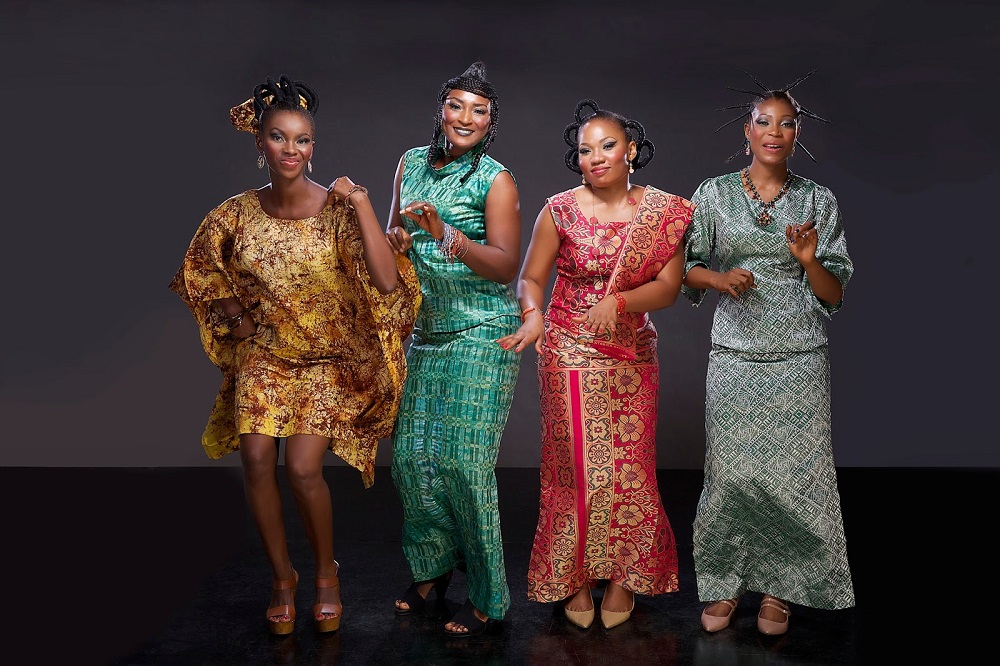Following three years of successful performances in Nigeria and Davos, Switzerland, the spectacular award-winning “Kakadu”- The Musical written and produced by one of the leading lawyers in Nigeria, Uche Nwokedi,(SAN), is currently generating the storm in South Africa.
Review, by Katlego Mereko – Joburg Post
Set in mid 60’s Lagos, Nigeria, Kakadu follows a story of a newly independent Nigeria seen through the eyes of a crew of friends Bisi, Amonia, Kola, Hassana, Emeka, Osahon and Dapo. They experience the joys of independence and the devastation of the civil wars and aftermath from 1966 to 1973 in Nigeria.
The play begins with two friends Kola and Emeka discussing current affairs over the game of draughts. Emeka, an Igbo abbreviation of the name Chukwuemeka, which means “God has done so much”, seemed to be most erudite in their group of friends. Influenced by his boss, Mr Ramsbottom, he was a voracious reader of The West African Pilot, a newspaper started by Nnamdi Azikiwe. Not too long into their discussion, Osahon, a new resident of the bustling Lagos enters the fray. It was “Ladies night” at the slickest, most popular club in Lagos, called Kakadu, and the guys spoke glowingly of the club, proposing to spend the night dancing and drinking away. Surprised at this, Osahon essentially asks ‘what is Kakadu?’ His response is met by both shock and laughter at its apparent folly. “Kakadu is Life!!” Kola emphatically responds. We also meet Dabo, the rich well-travelled lad, who displays some swag and sartorial splendour through his flashy suit and penchant for highbrow English. He is also quite the Casanova, his wallet and worldly persona proving quite magnetic.

Next, we meet the ladies Hassana, Amonia and Bisi. Among other things, they discuss the night ahead of them at Kakadu and also the guys on whom they may or may not have designs. Bisi seems to have a long standing yet openly secret crush on Emeka. After being pressed by her friends, she evasively brushes off any connection with Emeka to be their joint schooling in Primary school. In truth, both their fathers share cordial relations despite being of different ethnic groups.
After they broke into song, the guys and the girls convene at Kakadu. The night club is Lagos’s little enclave and represents the height of Nigerian independence with its youthful, vibrant and effervescent feel no doubt created by equally lively Nigerians of different tribal origins and also European tourists and settlers. In the club, we hear records from Otis Redding and also Chubby Checkers classic pop tune “Lets Twist Again” to which the cast danced almost impeccably to. Amonia wins on the dance floor as Lord Lugard announces towards the end of the night. After a night of dance and debauchery, the lads went back home, with Osahon in particular having had quite a blast at Kakadu if his severely-disoriented gait was anything to go by.
The guys would convene again after Emeka purchased his daily newspaper The West African Pilot. Emeka as always is eager to advance political discussion while his friends would rather speak about the women they saw and danced with at Kakadu. The night club would call them together again to celebrate 5 years of independence in Nigeria. This was in that fateful year of 1966. The crew celebrated and played dance-compelling tunes like the popular ‘Sawaleh’. Their celebrations, however, would come to a screeching halt as the military, almost out of nowhere, invaded the club in a coup d’état that would begin a dark time in Nigeria’s history. These are the wars that would lead to the Nigeria-Biafra war that saw thousands of people killed along tribal lines.
The end of the first half before the interval would be the beginning of a rather melancholic theme in the play. We learn that Emeka, the erudite Igbo who showed solidarity for Biafra in the war, has lost his mother.
The theme continues after the interval with Lord Lugard in particularly dejected as war has dealt a crushing blow to his once hot night club. Attempts at reviving it prove futile and leaves the place looking like something between a club the morning after a big party and a ghost town. Kakadu was now ‘lifeless’.
Emeka returns from the war after a cease-fire and reunites with family and friends. Nigeria was now different with elevated tribal angst, however, there was something in store for the lanky lad. He was to marry Bisi, but not without much trial as, coming from different tribes, the families were now at odds with each other. The marriage would happen, nonetheless, which saw a prompt return to the celebratory, high positive energy aura we enjoy in the beginning of the play. The celebrations would end as quickly they returned, however, with the ensemble robbed at gun-point at the wedding after-party upon their return to Kakadu night club.
The play would come to a close with all the cast on stage, easily over thirty of them, breaking into song, with the essential question in the lyrics being “How do we buïld a nation?” of course in the context of a Nigeria and perhaps greater Africa still struggling to completely sever all colonial ties.
I have watched and written on quite a few theatre plays now, and if all of them were of good quality, then Kakadu punches way above that benchmark. From the set to the cast, the musical beautifully and melodically manages to capture the vicissitudes of life in Nigeria around those times. The unforeseen military coup I think emerges brilliantly in the play as it demonstrated the nature in which it came unexpectedly, expect perhaps for the late Chinua Achebe who wrote a prophetic novel in the form of his Man of The People. Plus, I think most importantly, the singing was pitch perfect! Every one sounded in tune and all girls and guys treated the audience to the most mellifluous vocals I have heard from a theatre musical in a long time.
I would highly recommend you catch this award-winning musical until the 18th of June at Joburg Theatre, because, as Kola says, Kakadu is Life!!


Leave a Reply